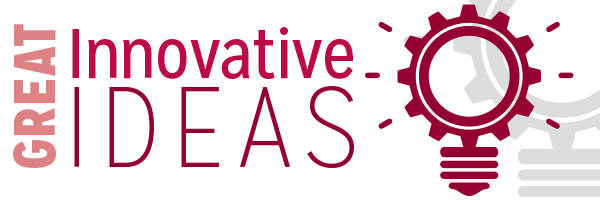Flexible Road Trains in Autonomous Public Transportation

Stephan Winter, University of Melbourne
The following Great Innovative Idea is from Stephan Winter from the University of Melbourne. Winter along with his coauthors Niels Agatz from Erasmus University Rotterdam, Ana Bazzan from Universidade Federal do Rio Grande do Sul, Ronny Kutadinata from the University of Melbourne, Dirk Christian Mattfeld from University of Braunschweig, Monika Sester from Leibniz University Hannover, and Ouri Wolfson from University of Illinois at Chicago were among the winners at the Computing Community Consortium (CCC) sponsored Blue Sky Ideas Track Competition at the ACM SIGSPATIAL International Conference on Advances in Geographic Information Systems 2016 (SIGSPATIAL 2016) in San Francisco, CA. Their winning paper is called Autonomous Public Transportation: Flexible Road Trains.
The Innovative Idea
The team was fascinated by a commercial idea to use vehicle platooning in public transport in order to allow transfers between vehicles on the fly. The vehicles could be smaller buses (pods), with greater roaming capacity. Remember standing in the rain or cold for a transfer between buses? This would be history. Also, a platoon of pods can split up and get closer to travel destinations than conventional public transport. But the idea, carefully thought through, poses substantial challenges in the operation and usability. We collected these challenges, and contributed starting points for research and development.
Impact
If feasible, this idea should greatly raise the attraction of public transport by a more comfortable and more flexible public transport system than by scheduled buses. The idea sits somewhere between scheduled buses, which are by necessity traveling only routes of sufficient demand, and self-driving shared taxis, which provide individual door-to-door services. Higher ridership in public transport means less congestion and emissions in cities.
Other Research
This idea is only one of the many innovations in urban mobility to be expected from self-driving vehicles in a shared economy. The mentioned self-driving shared taxis have been investigated by Alonso-Mora, Samaranayake, Wallar, Frazzoli, and Rus in PNAS, who provided also a scalable algorithm to allocate the vehicles in real-time to demand. They even played with different vehicle sizes, not stopping at what we know as `taxi’ but also covering the capacity of the pods. New, however, would be the ability to form platoons by these pods to enable transfer on the fly.
Researchers’ Background
The authors cover a broad range of disciplines from Operations Research, Decision Support, Artificial Intelligence, and Computational Transportation Science, and come from home institutions in Europe, the USA, Brazil and Australia.
Links
The idea of pods and platoons has been presented here: http://www.next-future-mobility.com/
Why this is a novel and challenging concept from an operation and management perspective has been discussed at this seminar, where the idea of a research vision was born: http://www.dagstuhl.de/de/programm/kalender/semhp/?semnr=16091
If you are interested in the contact author’s projects look here: http://www.imod-au.info










